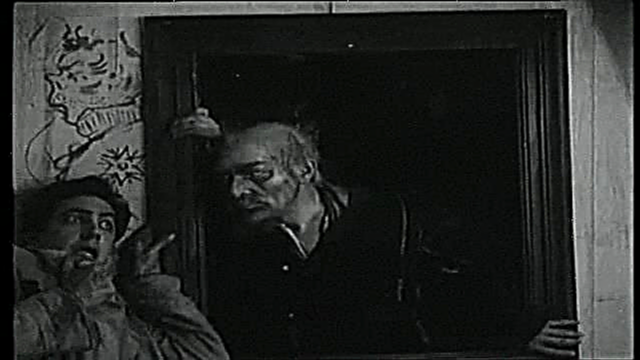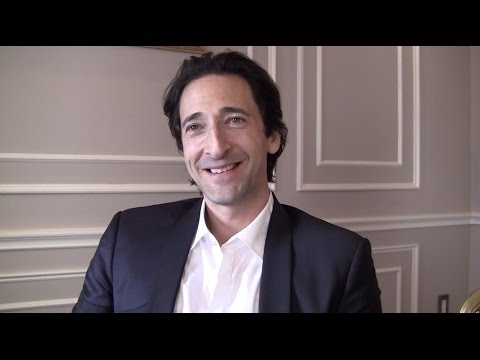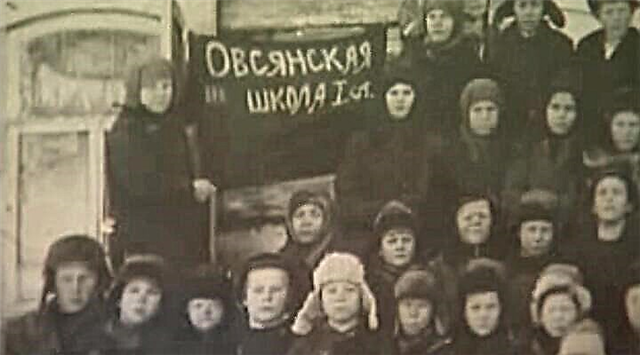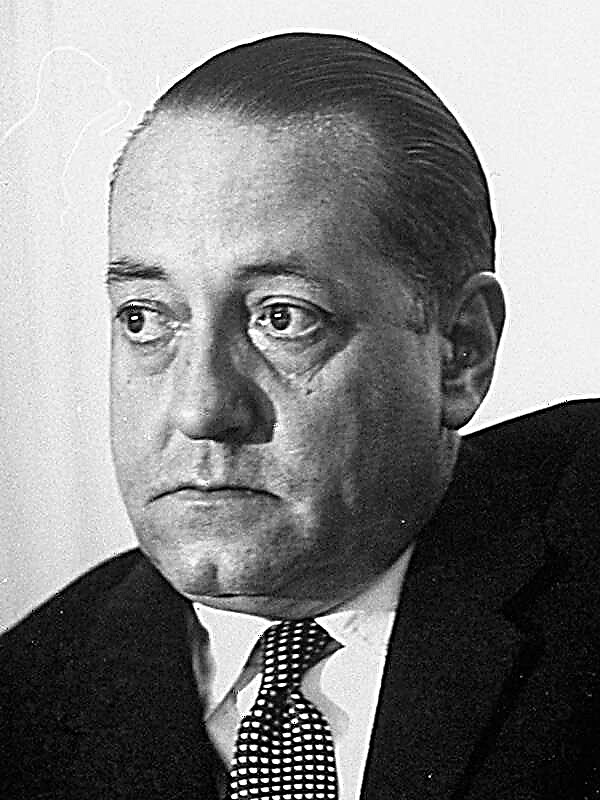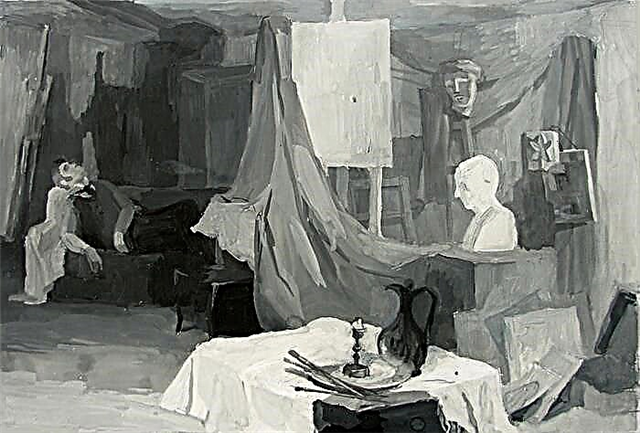On a nightly street in Seville, dressed as a modest bachelor, Count Almaviva waits for the object of his love to appear in the window. A noble nobleman, tired of the court licentiousness, for the first time wants to win the pure unbiased love of a young noble girl. Therefore, so that the title does not overshadow a person, he hides his name.
The beautiful Rosina lives locked up under the supervision of an old guardian, Dr. Bartolo. It is known that the old man is in love with his pupil and her money and is going to keep her in custody until the poor thing marries him. Suddenly, on the same street, a fun-humming Figaro appears and recognizes the Count, his old acquaintance. Promising to keep the count incognito, the rogue Figaro tells his story: having lost the position of a veterinarian because of too loud and dubious literary fame, he is trying to establish himself as a writer. But although all of Spain sings his songs, Figaro fails to cope with the competition, and he becomes a wandering barber. Thanks to incredible wit, as well as worldly wisdom, Figaro philosophically and with unchanging irony perceives sorrows and captivates with his gaiety. Together they decide how to rescue them from imprisonment, Rosina, in love with the count. Figaro enters the house of Bartolo, jealous of rage, as a barber and healer. They conceive that the count will appear, dressed up as a drunken soldier with an appointment to a post in the doctor’s house. Figaro himself, meanwhile, would incapacitate Bartolo's servant using simple medical devices.
The blinds open, and Rosina appears in the window, as always with the doctor. Allegedly by accident, she drops a sheet with notes and a note for her unknown fan, in which he is asked to open his name and title in singing. The doctor runs to pick up the paper, but the count is quicker. He sings a serenade to the motive from The Vain Precaution, where he calls himself an unknown bachelor Lindor. Suspicious Bartolo is sure that the sheet of notes was dropped and allegedly carried away by the wind for a reason, and Rosina must be in a conspiracy with a mysterious admirer.
The next day, poor little Rosina languishes and misses the prisoner in her room, and is trying to come up with a way to send a letter to Lindor. Figaro had just “cured” the doctor’s household: the maid took blood from her leg, and prescribed a sleeping pill and sneezing to the servants. He undertakes to transmit Rosina’s letter and in the meantime overhears Bartolo’s conversation with Basil, Rosina’s music teacher and Bartolo’s main ally. According to Figaro, this is a poor crook, ready to strangle a penny. Basil reveals to the doctor that Count Almaviva in love with Rosina in Seville and has already established correspondence with her. Bartolo in horror asks to arrange his wedding the next day. Count Basil suggests slandering Rosina’s eyes. Basil leaves, and the doctor rushes to Rosina to find out what she could talk about with Figaro. At this moment, a count appears in the form of a cavalryman, pretending to be tipsy. His goal is to call himself Rosina, give her a letter and, if possible, stay in the house for the night. Bartolo with a keen sense of jealousy guesses what intrigue lies behind this. An amusing skirmish takes place between him and the imaginary soldier, during which the count manages to deliver a letter to Rosina. The doctor proves to the count that he is freed from standing and drives him out.
The count makes another attempt to enter Bartolo's house. He disguises himself in a bachelor's suit and calls himself a pupil of Basil, whom he keeps in sudden discomfort in bed. The count hopes that Bartolo will immediately offer him to replace Basil and give a lesson to Rosina, but he underestimates the old man's suspicions. Bartolo decides to visit Basil immediately, and in order to keep him, the imaginary bachelor mentions the name of Count Almaviva. Bartolo demands new news, and then the count has to inform on behalf of Basil that Rosina’s correspondence with the count was discovered, and he was entrusted with the task of giving the doctor Rosina’s intercepted letter. The count is desperate that he is forced to give a letter, but there is no other way to earn the trust of an old man. He even offers to use this letter when the time comes to break Rosina’s resistance and convince her to marry a doctor. It is enough to lie that the student of Basil received it from one woman, and then confusion, shame, disappointment can bring her to a desperate act. Bartolo is delighted with this plan and immediately believes that the count was really sent by the bastard Basil. Under the guise of a singing lesson, Bartolo decides to introduce the imaginary student to Rosina, which is what the count sought. But they are not able to remain alone during the lesson, since Bartolo does not want to miss the chance to enjoy the pupil’s singing. Rosina performs a song from "Vain Precaution" and, having slightly altered it, turns the song into a love confession to Lindor. Lovers take time to wait for the arrival of Figaro, which will have to distract the doctor. Finally, he arrives, and the doctor scolds him for Figaro mutilating his household. Why, for example, had to put poultices on the eyes of a blind mule? It would be better if Figaro returned to the doctor a debt with interest, which Figaro swears that he would rather prefer to be a debtor to Bartolo all his life than to abandon this debt at least for a moment. Bartolo in return swears that he will not give in to the argument with the impudent. Figaro turns his back, saying that he, on the contrary, is always inferior to him. And in general, he just came to shave the doctor, and not to plot, as he deigns to think. Bartolo is in difficulty: on the one hand, it is necessary to shave, on the other hand, Figaro cannot be left alone with Rosina, otherwise he can again send her a letter. Then the doctor decides, in violation of all propriety, to shave in the room with Rosina, and Figaro to send for the device. The conspirators are delighted, as Figaro has the ability to remove the key to the blinds from the bunch. Suddenly, the sound of breaking dishes is heard, and Bartolo screaming out of the room to rescue his appliance. The count manages to make Rosina a date in the evening to rescue her from captivity, but he does not have enough time to tell her about the letter given to the doctor. Bartolo returns with Figaro, and at this moment Don Basil enters. Lovers in silent horror that now everything can open. The doctor asks Basil about his illness and says that his student has already passed everything on. Basil is perplexed, but the count imperceptibly shoves a purse into his hand and asks to be silent and leave. The count's convincing argument convinces Basil, and he, citing ill health, leaves. Everyone is relieved to accept music and shaving. The count declares that before the end of the lesson he must give Rosina the last instructions in the art of singing, leans over to her and whispers to explain her dressing up. But Bartolo sneaks up on the lovers and eavesdrops on their conversation. Rosina cries out in fright, and the count, having witnessed the doctor’s wild antics, doubts that with such oddities, the lord Rosina will want to marry him. Rosina swears in anger to give her hand and heart to the one who will free her from the jealous old man. Yes, Figaro sighs, the presence of a young woman and old age - this is what makes the old mind go beyond the mind.
Bartolo runs furiously to Basil to shed light on all this confusion. Basil admits that he never saw the bachelor in the eye, and only the generosity of the gift made him silent. The doctor does not understand why it was necessary to take a wallet. But at that moment, Basil was confused, and in difficult cases, gold always seems to be an irrefutable argument. Bartolo decides to exert his last efforts to possess Rosina. However, Basil does not advise him to do this. In the end, the possession of all kinds of benefits is not all. To enjoy them is what happiness is all about. Marrying a woman who does not love you means exposing herself to endless, difficult scenes. Why violence against her heart? Besides, Bartolo replies that it is better to cry because he is her husband than to die because she is not his wife. Therefore, he is going to marry Rosina that night and asks to bring a notary as soon as possible. As for Rosina’s perseverance, the imaginary bachelor, not wanting it himself, suggested how to use her letter to slander the count. He gives Basil his keys to all the doors and asks to bring a notary as soon as possible. Poor Rosina, terribly nervous, is waiting for Lindor to appear in the window. Suddenly, the guardian's footsteps were heard, Rosina wants to leave and asks the annoying old man to give her peace at least at night, but Bartolo begs him to listen. He shows Rosina's letter to the count, and the poor thing recognizes him. Bartolo lies that, as soon as the Count of Almaviva received the letter, he immediately began to brag to them. It allegedly came to Bartolo from one woman to whom the count presented the letter. And the woman told about everything in order to get rid of such a dangerous rival. Rosina was supposed to be the victim of a monstrous conspiracy of the count, Figaro and a young bachelor, count henchman. Rosina is shocked that Lindor, it turns out, did not conquer it for himself, but for some Earl of Almaviva. Beside himself with humiliation, Rosina invites the doctor to marry her immediately and warns him of the impending abduction. Bartolo runs for help, intending to ambush the count near the house to catch him as a robber. The unfortunate insulted Rosina is left alone and decides to play a game with Linder to see how low a man can fall. The blinds open, Rosina runs away in fear. The count is only concerned with whether the modest Rosina would seem to immediately plan his marriage to be too daring. Figaro advises then to call her cruel, and women are very fond of when they are called cruel. Rosina appears, and the count begs her to share the lot of the poor with him. Rosina indignantly replies that she would consider it fortunate to share his bitter fate, if not for the abuse of her love, as well as the baseness of this terrible Count Almaviva, to whom she was going to sell it. The count immediately explains to the girl the essence of the misunderstanding, and she bitterly repents of her gullibility. The count promises her that since she agrees to be his wife, he is not afraid of anything and will teach the vile old man a lesson.
They hear the front door open, but instead of the doctor with the guards, Basil with a notary is shown. A prenuptial agreement is immediately signed, for which Basil receives a second wallet. Bartolo burst in with the guard, who was immediately embarrassed to learn that the count was before him. But Bartolo refuses to recognize the marriage as valid, citing the rights of the guardian. He is objected that, having abused his rights, he lost them, and the resistance to such a respectable union testifies only to the fact that he fears responsibility for the poor management of the pupil’s affairs. The count promises not to demand anything from him except consent to marriage, and this has broken the stubbornness of the mean old man. Bartolo blames his own negligence for everything, but Figaro is inclined to call it frivolity. However, when youth and love conspire to deceive the old man, all his efforts to stop them can be called futile precaution.

